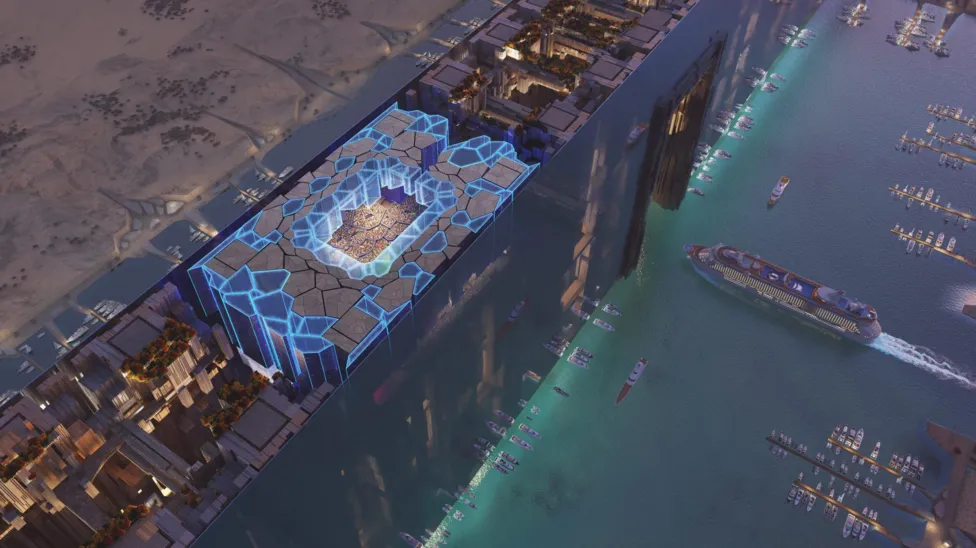Saudi Arabia has proposed building 11 new stadiums, including one located 350 meters above ground, as part of its bid to host the 2034 World Cup.
The proposed stadium in Neom, a future city in the north-western part of the country, will be accessible only via high-speed lifts and driverless vehicles.
This stadium is planned to host a quarter-final match and is part of Saudi Arabia’s ‘The Line’ project aimed at diversifying the kingdom’s economy beyond oil.
Saudi Arabia’s bid is currently uncontested, with the country having until October to finalize and submit its plans.
Out of the 11 new stadiums, eight will be in the capital, Riyadh, including the 92,760-capacity King Salman International Stadium, which is slated to host both the opening match and the final. Matches will also be held in the cities of Jeddah, Al Khobar, and Abha.
The 2034 World Cup will be the first time the expanded tournament, featuring 48 teams, is hosted by a single country. The host nation will be confirmed by the FIFA congress on December 11.
How much development needs to be done?
In the case of Neom, an entirely new city will need to be constructed.
The flagship project, The Line, is envisioned as a car-free city, just 200 meters (656 feet) wide and 170 kilometers (106 miles) long. However, only 2.4 kilometers of the project is expected to be completed by 2030.
The Line will surpass the height of the Empire State Building and cover a length roughly equivalent to the distance between Bristol and London.
According to the bid document, the new stadium in Neom will be powered entirely by renewable energy, primarily from wind and solar sources.
Plans also include the construction of a new international airport in Neom, which is expected to accommodate 12 million domestic and international visitors annually by 2034.
Additionally, airports in other host cities will be expanded. Riyadh’s airport is projected to handle 100 million passengers per year by 2034, a 170% increase from 2023 levels. Abha’s airport will be upgraded to increase its capacity from 1.5 million to 8 million passengers by the time of the tournament.
Saudi Arabia is also planning to extend train lines and bus routes, with the document promising “quick and efficient” navigation across the country.
While Qatar reportedly spent $220 billion (£172 billion) to host the 2022 World Cup, the Saudi bid document does not specify the total cost of hosting the 2034 World Cup. However, the plans outlined will likely require hundreds of billions of dollars.
When could it take place?
Similar to the 2022 World Cup in Qatar, it may be necessary to hold a winter tournament in Saudi Arabia to ensure cooler temperatures.
In Saudi Arabia, temperatures are most moderate from October to April, with average daily temperatures in host cities ranging from 15 to 30 degrees Celsius.
From May to September, temperatures can soar, with average daily temperatures ranging from 17 to 38 degrees Celsius.



